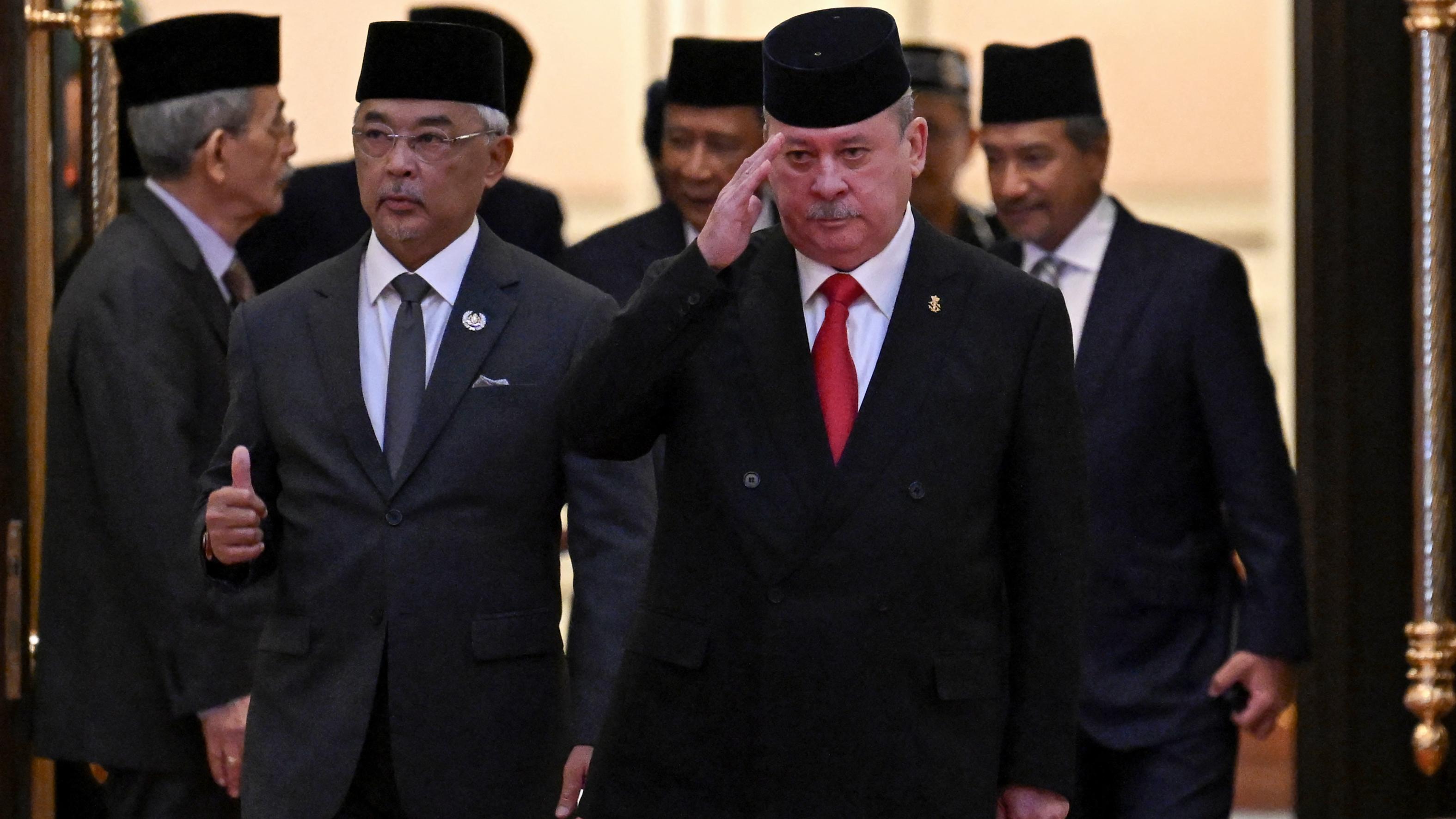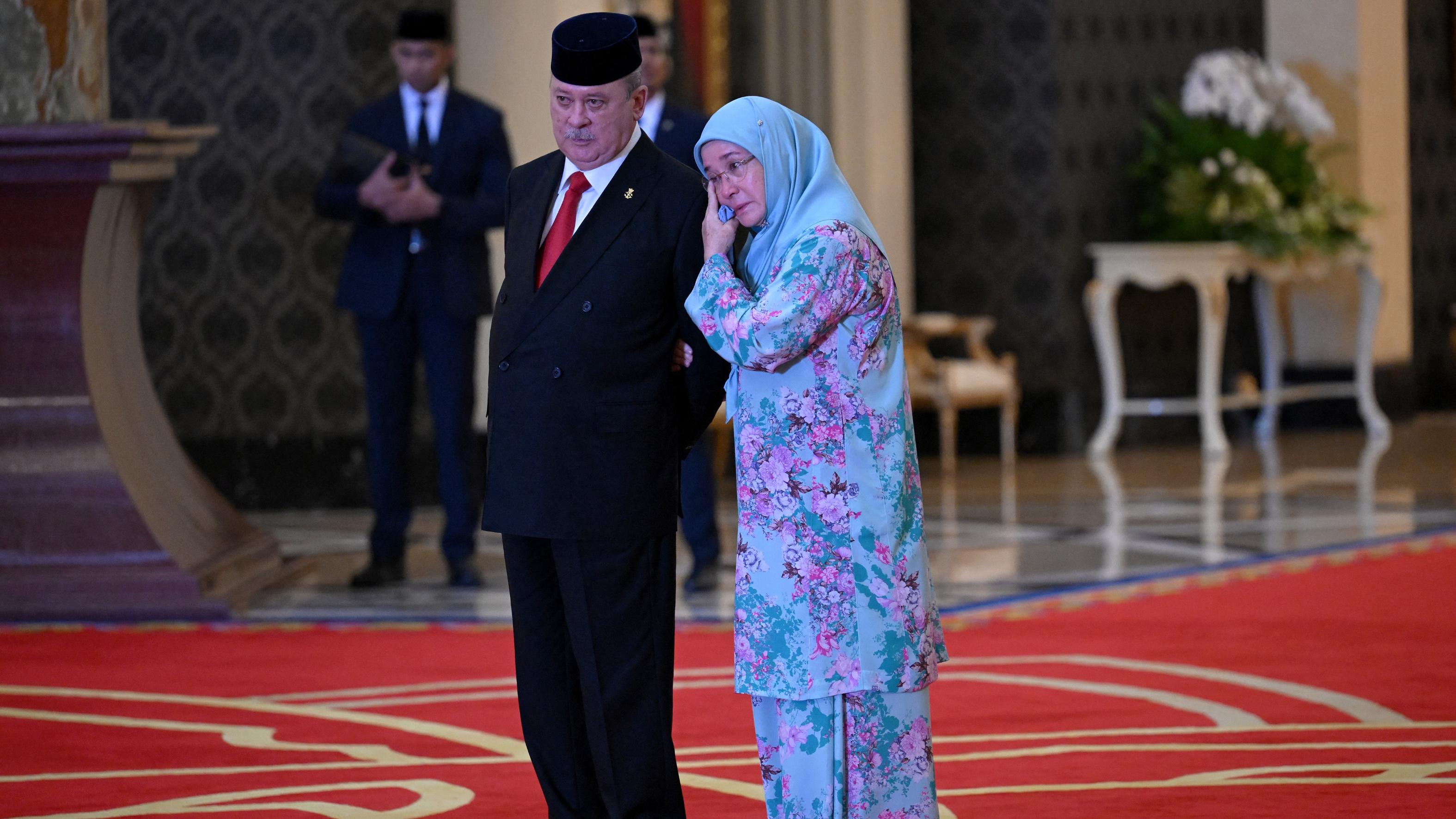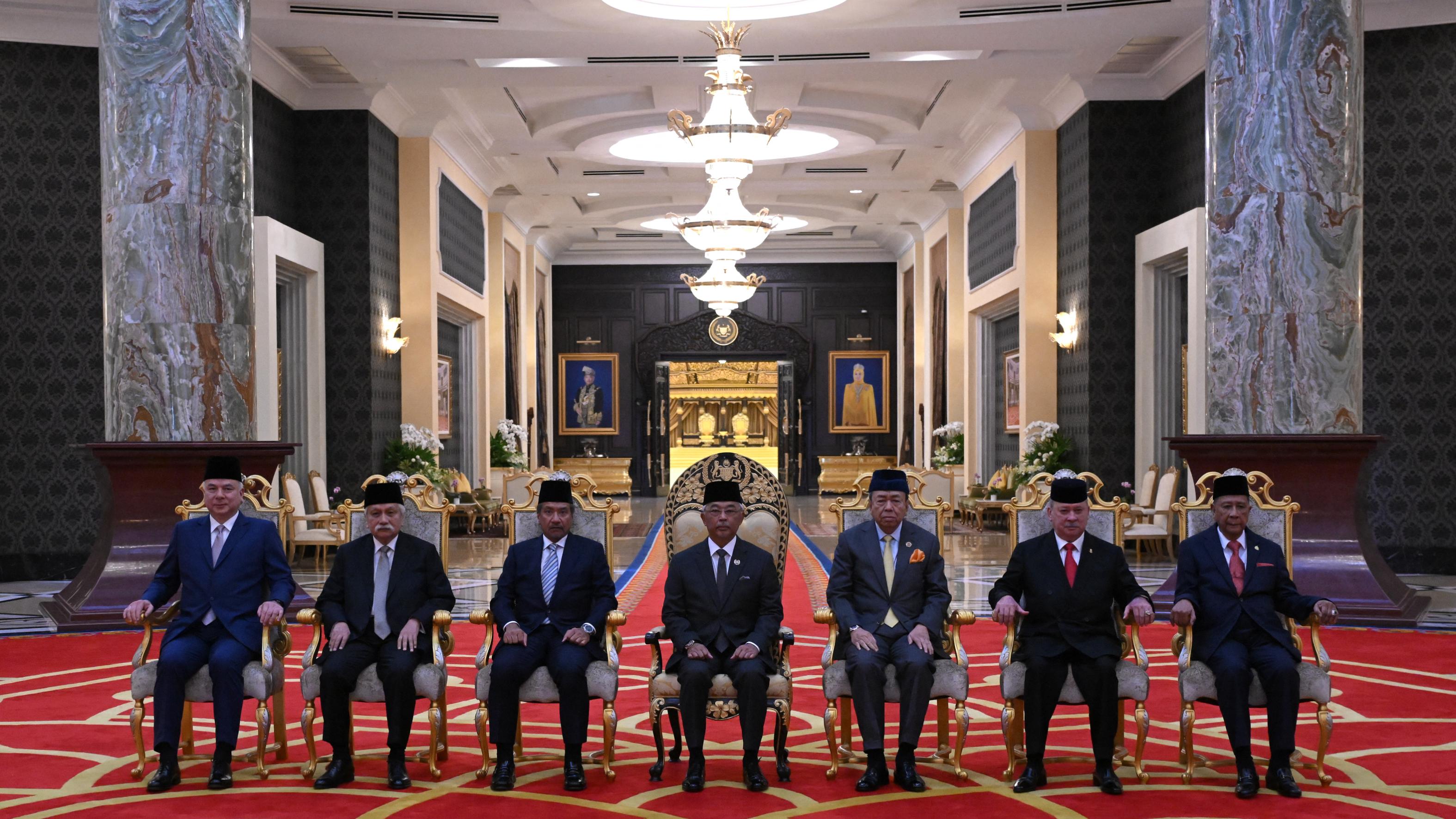 Malaysia's King Sultan Abdullah Sultan Ahmad Shah (2nd left) and Sultan Ibrahim Iskandar of Johor (2nd right) walk together after the election for the next Malaysian king at the National Palace in Kuala Lumpur on Oct 27, 2023. (PHOTO / AFP)
Malaysia's King Sultan Abdullah Sultan Ahmad Shah (2nd left) and Sultan Ibrahim Iskandar of Johor (2nd right) walk together after the election for the next Malaysian king at the National Palace in Kuala Lumpur on Oct 27, 2023. (PHOTO / AFP)
KUALA LUMPUR — Malaysia's royal families elected the powerful and outspoken Sultan Ibrahim Sultan Iskandar from the southern state of Johor to be the country's next king.
The king plays a largely ceremonial role in Malaysia, but the monarchy has become more influential in recent years due to prolonged political instability that has prompted the incumbent king to wield rarely used discretionary powers.
King Al-Sultan played an unusually active role in Malaysian politics, picking the country's last three prime ministers
Malaysia has a unique system in which the heads of its nine royal families take turns to be monarch for a five-year term. The Southeast Asian country is a parliamentary democracy, with the monarch serving as head of state.
READ MORE: M'sia's once-peripheral king emerges as major political force
Sultan Ibrahim will take over from current King Al-Sultan Abdullah on Jan 31, 2024, the keeper of the rulers' seal said in a statement on Friday.
Unlike other traditional Malaysian rulers, Sultan Ibrahim has been outspoken about politics and has said he has a good relationship with Prime Minister Anwar Ibrahim.
The sultan, who is known to have a big collection of luxury cars and motorcycles, has wide-ranging business interests from real estate to mining.
 Malaysia's Queen Tunku Azizah Aminah Maimunah Iskandariah (right) hugs her brother Sultan Ibrahim Iskandar of Johor after the election for the next Malaysian king at the National Palace in Kuala Lumpur on Oct 27, 2023. (PHOTO / AFP)
Malaysia's Queen Tunku Azizah Aminah Maimunah Iskandariah (right) hugs her brother Sultan Ibrahim Iskandar of Johor after the election for the next Malaysian king at the National Palace in Kuala Lumpur on Oct 27, 2023. (PHOTO / AFP)
King Al-Sultan played an unusually active role in Malaysian politics, picking the country's last three prime ministers.
The federal constitution grants the monarch only a few discretionary powers, with the king largely required to act upon the advice of the prime minister and cabinet.
It also allows the king to appoint a prime minister who he believes has a parliamentary majority, a power never utilised until 2020, as the premier is typically picked through an election.
 Sultan Nazrin Muizzuddin Shah of Perak, Sultan Muhriz Munawir of Negeri Sembilan, Sultan Mizan Zainal Abidin of Terengganu, Malaysia's King Sultan Abdullah Sultan Ahmad Shah, Sultan Sharafuddin Idris Shah of Selangor, Sultan Ibrahim Iskandar of Johor and Sultan Sallehuddin Badlishah pose for pictures before the election for the next Malaysian king at the National Palace in Kuala Lumpur on Oct 27, 2023. (PHOTO / AFP)
Sultan Nazrin Muizzuddin Shah of Perak, Sultan Muhriz Munawir of Negeri Sembilan, Sultan Mizan Zainal Abidin of Terengganu, Malaysia's King Sultan Abdullah Sultan Ahmad Shah, Sultan Sharafuddin Idris Shah of Selangor, Sultan Ibrahim Iskandar of Johor and Sultan Sallehuddin Badlishah pose for pictures before the election for the next Malaysian king at the National Palace in Kuala Lumpur on Oct 27, 2023. (PHOTO / AFP)
King Al-Sultan used those powers during a period of political instability triggered by the defeat of the United Malays National Organisation (UMNO), which had governed Malaysia uninterrupted since independence until 2018.
The king also has the power to pardon convicted people. In 2018, Al-Sultan's predecessor, Sultan Muhammad V, pardoned Anwar, who was then imprisoned on sodomy and corruption charges that he says were politically motivated.
READ MORE: Malaysia's new king calls for racial unity at coronation
Former prime minister Najib Razak, jailed last year on a graft conviction linked to a scandal over state fund 1MDB, has applied for a royal pardon, a request that could be reviewed by the new king.


